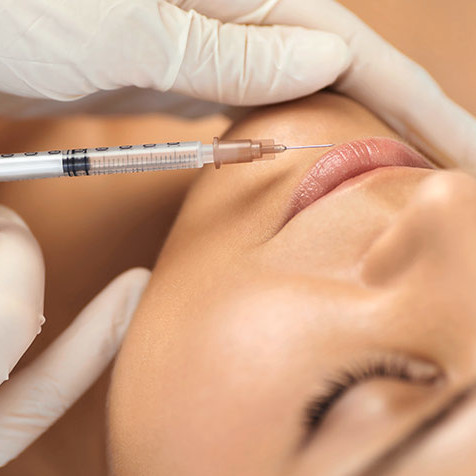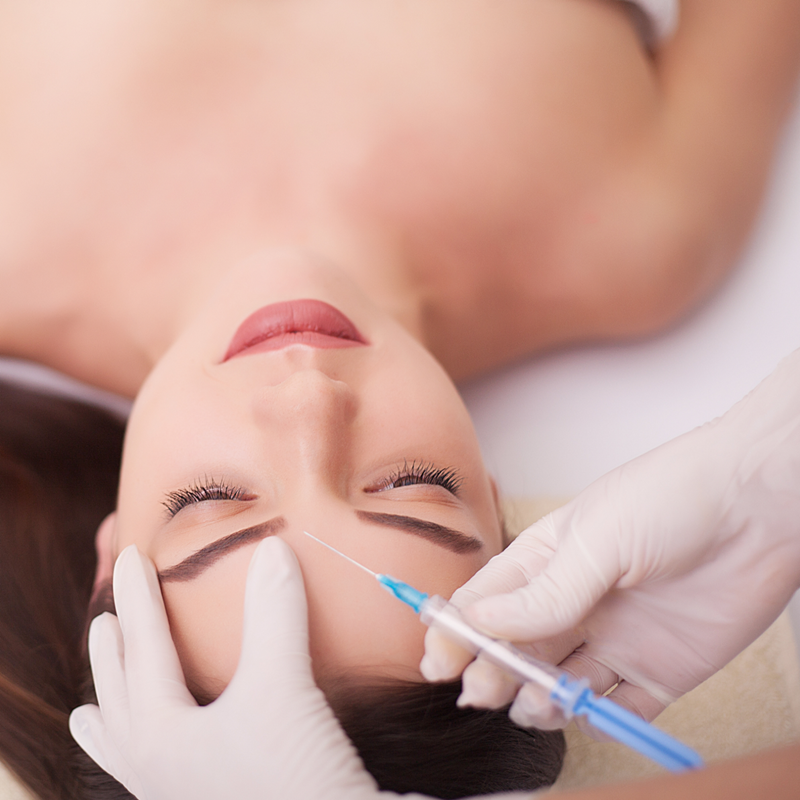
Hyperhidrosis
Hyperhidrosis of the body, including excessive sweating of the face, head, excessive sweating in the armpits or excessive sweating of the feet is a condition that should be treated.
Body sweating is a natural physiological reaction of the body to remove metabolic by-products and toxins from the body. It also has a thermoregulatory function. In the process of sweating, the body naturally cools down during intense exercise or in hot weather.
Facial sweating seen especially on the forehead and nose area is embarrassing and therefore leads to a loss of self-confidence and often has the effect of limiting social contacts.
Causes of excessive sweating of the head and face
The causes of excessive sweating of the head and face are many, and include:
- stress,
- experiencing strong emotions,
- obesity or being overweight,
- genetic background,
- disorder of the nervous system,
- hormonal changes (puberty, menopause),
- stroke,
- diabetes,
- heart disease,
- Parkinson's disease,
- tuberculosis,
- use of stimulants,
- consumption of hot or spicy foods,
- certain cancers.
Causes of excessive sweating under the arms and feet
- Excessive activity of sweat glands located under the arms or on the feet.
Available treatment methods
Among the available treatment methods are: washing the head regularly and keeping hygiene high, drinking herbal infusions, taking sedatives, anytcholinergic medications and B vitamins, iontophoresis, a treatment using low intensity current, intradermal botulinum toxin injection treatments (the most effective and safe).
Retention time of the treatment
New neuromuscular endings, inhibited by botulinum toxin, form over a period of 4 to 12 months, so patients most often enjoy the resulting effect for about 4-6 months in the case of wrinkles, and up to 9 or even 12 months in the case of hyperhidrosis treatment.

Migraine treatment
A migraine is a severe pain that lasts from a few hours to up to several tens of hours, in the back of the head, in the front or on the side. It is always in only one place.
Very often a few minutes to an hour before the onslaught of pain, there are visual disturbances. Most often in the nature of blinking spots or lines. Less often there is blurring or deformation of the image.
This is much more than an ordinary headache.
Migraine is often accompanied by other symptoms, such as increased sensitivity to light, sound and smells, as well as lack of appetite, nausea and vomiting, numbness in the face or limbs, dizziness and speech disorders.
Migraine can affect anyone and virtually any age, but overwhelmingly affects women in adolescence.
Often migraine pains pass with age, and in some people they recur in adulthood.
The main cause of migraine pain is considered to be hypersensitive neurovascular reactions, usually due to specific genetic conditions.
If there is frequent pulsatile unilateral pain in the back of the head, in the front or on the side, it is worth examining this carefully and combating it with available methods.
Particularly dangerous is pain in the back of the head. It can only indicate fatigue, be the cause of stress or too much emotional strain, but it can also herald a serious infection (such as meningitis), stroke or cancer.
Treatment of migraines with botulinum toxin involves the pinpoint injection of botulinum toxin, which causes the muscles of the forehead, temples, neck and/or back of the head to relax.
The result is the removal of pressure on the nerves responsible for the onset of migraine pain and control of the pain impulses that send impulses to the brain.
Duration of the effect
As a result of botulinum toxin, new neuromuscular endings are stopped from developing. They form anew over a period of 4 to 12 months, so patients usually enjoy the obtained effect for about 4-6 months.
Contraindications to the treatment of migraine with botulinum toxin
- Allergy, to any component of the preparation,
- neuromuscular conduction disorders (myasthenia gravis, Lambert Eaton syndrome),
- local skin infections,
- blood coagulation problems,
- pregnancy and lactation,
- neuromuscular conditions resulting from genetic conditions,
- use or discontinuation within a week prior to surgery of drugs such as D-penicillamine, cyclosporine, tubocurarine, pancuronium, galamine, succinylcholine, lincomycin, tetracycline, polymyxin, aminoquinolones, aminoglycosides.

